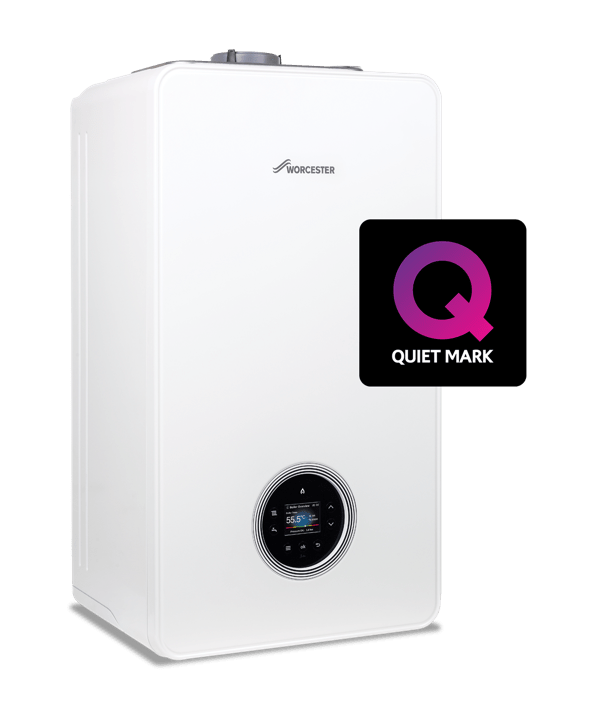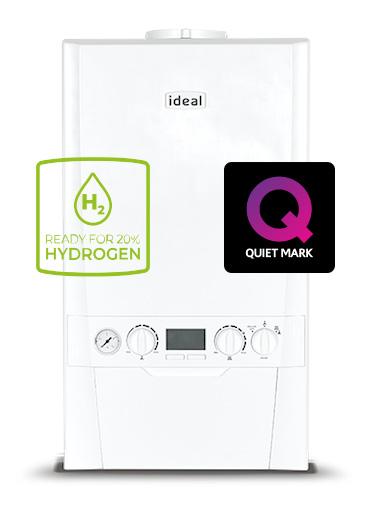Your basket is currently empty!
Written by
What Is Central Heating and How Does it Work?


Heating systems are crucial, but there’s a wealth of significant information that you may be unaware of, particularly if you’re considering upgrading or installing a new central heating system.
Your current central heating system, which is likely to be a gas boiler, ensures that you are provided with heat and hot water during the winter months.
However, there are different types of central heating and other ways of distributing hot water around your home which may benefit you even further in the search for lower heating bills.
Get your Fixed Price Boiler Quotes Online
New Gas Boilers with £0 Deposit & 0% Interest Finance Availble
Get the best quotes for boiler installation online in under 1 minute now
What is a central heating system?
Central heating is a heating system that operates by generating heat in a single location, such as a boiler or furnace, and then distributing it throughout a building using radiators, ducts, or pipes.

The system heats water or air in the central location and then circulates it to provide warmth to individual rooms. A central heating system can be powered by various sources, including natural gas, oil, and electricity, or renewable energy sources such as solar, geothermal, or biomass.
Central heating is a convenient and energy-efficient way to maintain a comfortable indoor temperature, particularly during colder seasons, usually by circulating hot water around radiators in your home.
Get your Fixed Price Boiler Quotes Online
New Gas Boilers with £0 Deposit & 0% Interest Finance Availble
Get the best quotes for boiler installation online in under 1 minute now
What types of central heating systems are there in the UK?
There are three main types of central heating systems used in the UK:
Gas central heating system
This is the most common type of central heating system in the UK. It is powered by natural gas, which is supplied to the home via a network of underground pipes.
The gas is burned in a gas boiler to heat water, and then once at the right temperature, this hot water is then circulated through pipes to radiators or underfloor heating systems in each room.
There are also different types of gas boilers too which in turn can be used to provide heating. These include combi boilers, system boilers and regular boilers. A Combi boiler is tankless and provides instant hot water to wet systems, whereas a system boiler and regular boiler require a hot water cylinder to work as well.
Oil central heating
This type of central heating system is similar to gas central heating, but it uses oil as the fuel source instead of natural gas. The oil is stored in a tank on the property, and it is burned in an oil boiler to heat water, and again once the hot water is at the right temperature, it is then circulated through pipes to radiators or underfloor heating systems with the home.
Electric central heating system
This type of central heating system is powered by electricity, and it is typically used to supply hot water in homes that are not connected to the gas network. Electric boilers or storage heaters heat water or air, which is then circulated through pipes or vents to provide heat to the rooms.
Electric boilers are deemed more energy efficient, however, the cost of electricity is too high to make them viable.
Get your Fixed Price Boiler Quotes Online
New Gas Boilers with £0 Deposit & 0% Interest Finance Availble
Get the best quotes for boiler installation online in under 1 minute now
Heat pump central heating systems
A heat pump central heating system is a type of heating system that uses a heat pump to transfer heat from the outside air, ground, or water to provide warmth to the indoor spaces of a building.
You will likely of heard much about these types of systems as it is said that heat pump central heating systems are energy-efficient because they don’t generate heat; instead, they transfer it from the environment, which requires less energy.
Another benefit is that they can also provide cooling in the summer by reversing the direction of the refrigerant flow but this will increase your electricity bill.
Renewable heating system
There are also renewable energy options such as biomass boilers, heat pumps, and solar thermal systems, which are becoming more popular as people look for ways to reduce their carbon footprint and lower their energy bills. These systems use sustainable sources of energy to generate heat for central heating, such as wood pellets, ground or air-source heat, or solar power.
How does central heating work?
Central heating systems work by generating heat in a central location, such as a boiler or furnace, and then distributing the heat throughout a building using ducts, pipes, or radiators. These systems can be powered by various sources such as natural gas, oil, and electricity, or renewable energy sources like solar, geothermal, or biomass.
In water-based central heating systems, hot water is generated in the boiler or furnace and then circulated through pipes to radiators or underfloor heating systems in each room. The radiators or underfloor systems release heat into the room, and the cooled water is returned to the boiler to be reheated.
In air-based central heating systems, hot air is generated in the boiler or furnace and then circulated through ducts to vents in each room, releasing the heated air into the room and drawing back the cooled air to be reheated.
The central heating system typically includes a thermostat that senses the indoor temperature and signals the boiler or furnace to turn on or off depending on the temperature setting, helping to maintain a consistent indoor temperature.
Overall, central heating provides an efficient and convenient way to heat a building and maintain a comfortable indoor temperature, particularly during colder months.
Get your Fixed Price Boiler Quotes Online
New Gas Boilers with £0 Deposit & 0% Interest Finance Availble
Get the best quotes for boiler installation online in under 1 minute now
What is a wet central heating system?
A wet central heating system is a type of heating system that uses hot water to distribute heat throughout a building. The system typically consists of a boiler, which heats water and pumps it through pipes to radiators or underfloor heating systems located in various rooms.
As the hot water flows through the pipes, it releases heat into the rooms, and the cooler water returns to the boiler to be reheated and circulated again. Wet central heating systems are popular because they are efficient, reliable, and can provide consistent heat throughout a building.
In contrast, a dry central heating system uses air instead of water to distribute heat, but this type of system is less common because it can be less efficient and harder to control than a wet central heating system.
How much does it cost to install central heating?
The cost of installing central heating in the UK can depend on various factors such as the property’s size, the type of system, and the installation’s complexity. Gas central heating typically costs between £2,500 to £4,500, while oil central heating can cost between £4,000 to £6,000, and electric central heating can cost between £1,500 to £4,000.
Although renewable energy systems such as biomass boilers, heat pumps, or solar thermal systems may have higher upfront costs, they can offer long-term energy bill savings.
The installation costs for these systems can vary depending on the installation’s size and complexity, with biomass boilers costing between £5,000 to £20,000, heat pumps costing between £6,000 to £18,000, and solar thermal systems costing between £3,000 to £5,000 on average.
It is important to obtain multiple quotes from qualified installers before selecting a central heating system to ensure a fair price and safe and accurate installation.
Get your Fixed Price Boiler Quotes Online
New Gas Boilers with £0 Deposit & 0% Interest Finance Availble
Get the best quotes for boiler installation online in under 1 minute now
Written by
Get your Fixed Price Boiler Quotes Online
New Gas Boilers with £0 Deposit & 0% Interest Finance Availble
Get the best quotes for boiler installation online in under 1 minute now
What is in this article?
- What is a central heating system?
- What types of central heating systems are there in the UK?
- Gas central heating system
- Oil central heating
- Electric central heating system
- Heat pump central heating systems
- Renewable heating system
- How does central heating work?
- What is a wet central heating system?
- How much does it cost to install central heating?





